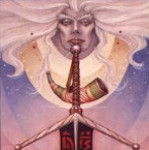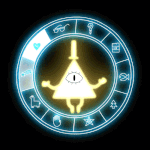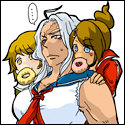|
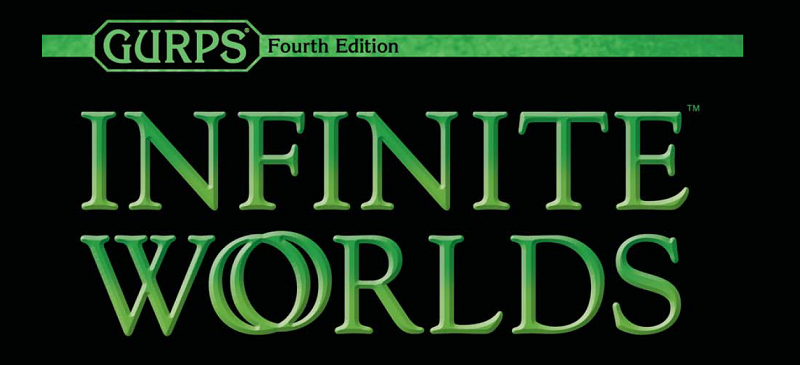 Update 5: Infinity Unlimited Infinity Unlimited is structured like a four-profit corporation, with a chairman (Takeshi Z Carter, van Zandt’s handpicked successor), a board of directors, lines of business, and shareholders. It isn’t one. To start with, though half the board of directors are elected to their positions by shareholders to protect their investments, the other half are various political appointees, and both halves have little influence over how Infinity operates (they’re mostly just there to pad their resumes and pull in big salaries). Infinity’s corporate culture, especially at the top, favors extreme competence and interpersonal loyalty, so much so that empire builders either direct their efforts outwards or end up exiled to some isolated timeline to build their empires in peace. The company below them functions much like any other corporation, down to the names and functions of individual departments all headquartered in the new tallest building in Chicago ( Its profit structure is… Fascinating. As I said before, Infinity’s budget is effectively infinite. Licensing fees on parachronic equipment alone boggle the mind, given their monopoly (with prices to match) on one of the most valuable technologies in the world, not to mention the cut they take from all tourism profits and commodity sales. But that’s all a sideshow compared to the real crosstime bounty: GURPS Infinite Worlds posted:Deuterium-fusion plants, room-temperature superconductors, energy-efficient seawater desalinization, hybrid pest-proof grains, cures for some cancers, and many other minor technological miracles trawled from high-tech parallel worlds are only some of the higher earners. Homeline relies on outtime technology just to function, and Infinity takes a cut from almost all of it. Only so many people transport oil from empty timelines to energy-starved ones or sell authentic Mohenjdo-Daran pottery for living; everybody uses fusion power. In return, Infinity always licenses that technology from whoever invented or controls it in its home timeline unless there’s no one to buy it from or it belongs to some group or government so odious Infinity would rather steal and reverse engineer it then fund them. How does Infinity define “too evil to work with” when the UN includes dictatorships like China? That’s a good question the book doesn’t answer. At least it’s pretty clear that category includes the various Nazi timelines. In some countries, Infinity also needs to pay royalties to any inventor’s (or corporation’s) Homeline self, which makes some people occasionally very, very happy – good background fodder for PCs. All of the above goes for cultural items, too, by the by; if an Infinity subsidiary wants to sell Memoriae Fortvitae Accessae on Homeline, they have to find Daftvs Pvncvs’s label, license it in full accordance with the local law, and pay them appropriately. What happens when somebody realizes of the subsidiary’s paper trail leads nowhere and investigates? What happens when the alternate IRS audits the subsidiary to find out where the hell all that income is coming from? Those are good questions the book doesn’t answer. Speaking of subsidiaries, Infinity is hardly the only game in town when it comes to corporate parachronics; they have a monopoly on the technology and always take a cut of the profits, true, but there is an entire world of private entities that license parachronic technology for their own use. In theory, Infinity could strangle competitors at will by confiscating all their equipment, but it never seems to do so; I guess doing that to somebody who isn’t cartoonishly over the line is bad politics. While theoretically independent, many of these companies have close ties to Infinity– for instance, Cliodyne Research Group is a former Infinity think tank that it spun off for “murky corporate reasons”, now a consulting firm that caters to anyone looking to build social economic profiles of alternate timelines (mostly Infinity). Others are… Goddamnit book, why  . I can’t help but question your personnel choices, but at least if you had to choose a Nazi war criminal to make a good guy, at least you chose the one whose warcrime was dressing up as the enemy and who probably worked with the Mossad later in life . No such excuses here. Eight years ago, Infinity was trying and failing to tackle the complexities around economical crosstime mining when some Patrol members on assignment staged a prison break that freed (among others) an alternate version of Cecil Rhodes. He offered to solve the problem, they accepted for some godforsaken reason, and he did, in spades – we’re talking profit margins at least an order of magnitude higher. And then Infinity realized his Consolidated Mines, Unltd. was one of the most profitable parts of the company and he was planning on running for the board of directors. They forced his resignation and spun off CMU as his personal firm just to shut him up, only to realize they’d just let one of history’s greatest imperialists loose on at least nine versions of Africa, probably more once he expands into other timelines too. Good job, guys. And good job, book, for making the guy loving Rhodesia was named after a prominent part of the game setting. That was a thing that didn’t need to exist, but now it does. . I can’t help but question your personnel choices, but at least if you had to choose a Nazi war criminal to make a good guy, at least you chose the one whose warcrime was dressing up as the enemy and who probably worked with the Mossad later in life . No such excuses here. Eight years ago, Infinity was trying and failing to tackle the complexities around economical crosstime mining when some Patrol members on assignment staged a prison break that freed (among others) an alternate version of Cecil Rhodes. He offered to solve the problem, they accepted for some godforsaken reason, and he did, in spades – we’re talking profit margins at least an order of magnitude higher. And then Infinity realized his Consolidated Mines, Unltd. was one of the most profitable parts of the company and he was planning on running for the board of directors. They forced his resignation and spun off CMU as his personal firm just to shut him up, only to realize they’d just let one of history’s greatest imperialists loose on at least nine versions of Africa, probably more once he expands into other timelines too. Good job, guys. And good job, book, for making the guy loving Rhodesia was named after a prominent part of the game setting. That was a thing that didn’t need to exist, but now it does. Here’s an average conveyer loadout from the last section to break up the text. This chapter gives us notes on various companies completely unaffiliated with Infinity, most of which are de facto villains (a Russian mining conglomerate with ties to both the government and the mafiya, Homeline’s last great oil company, a foundation that secretly smuggles books and artifacts), but the most interesting is Johnson Crosstime Incorporated. Alex A. Johnson founded the company as a tourism outfit, but he quickly realized the market was already oversaturated and he couldn’t hope to compete. Instead, he slipped an extremely poorly worded trading license past some overworked bureaucrat and moved into Rome-2, a timeline where Rome hit its decadent height and stuck around for a while. By the time communications agents rolled around to check on the timeline, Johnson was already one of the most powerful figures in the Roman government, with his hands in everything from the military (his personal legions drove off in invasion from the Northeast) to a telegraph network under construction to inflation crisis he caused by using too much gold to bribe people. Infinity came in, looked at the mess, threw up their hands, and left him in place with enough oversight to hold him in line if he did anything stupid (and a subsidiary to manage the inflation crises that ended up splitting off as its own company). So, now you can vacation in scenic ancient Rome and count on not getting lead poisoning. But for all the independent enterprises this section lists, it spends the bulk of its page space on two direct Infinity affiliates, the first of which is Time Tours, Ltd. These are the guys Johnson couldn’t compete with. They don’t have a monopoly on timeline tourism, per se, but they do have enough connections to Infinity dominate the market; in return, Infinity puts some serious restrictions on them to make sure they don’t cause complete chaos in their destinations. Most notably, Time Tours is contractually obligated to place preserving the Secret above the welfare of their customers, to the point that their waivers specify Time Tours, Ltd. does not guarantee their return, sanity, or survival. That doesn’t stop customers, in large part because the company has an excellent track record. Its tour guides are rigorously prepared and well supported, trained professionals given broad latitude to make sure everybody makes it back safe and happy while PR deals with unhappy customers. So, PCs.  Time Tours doesn’t have a set itinerary because history isn’t that predictable. They offer everything from on-site filming for docudramas and infomercials to wilderness tours to hunting expeditions in the Jurassic, but most of their business comes from taking tourists to witness famous events as they happen – which seems kind of awkward, given how basically every timeline the book lists deviates from Homeline history dramatically and nobody wants idiot tourists wandering around destabilizing Echoes, but whatever. As should go without saying, any event either only happens once or takes place over a short period of time (Shakespeare was only involved with the Globe for so long, after all), so Time Tours has to be strategic in where they go and who they take with them. They also impose tight restrictions on what people can bring with them (only period-appropriate things) and what people can bring back, but as long as nobody’s selling smartphones to the locals most people don’t mind. That seems to be a theme with the company: for all the restrictions placed on them, most tourists willingly follow the rules in exchange for a good time and guides looking the other way. The book recommends casting PCs as tour guides dealing with unexpected developments, since it gives them the opportunity to be competent instead of being a tourist. Tourist PCs aren’t off the table, though, and in the right circumstances (i.e. they get split from the group) they work pretty well: you just have to make sure they’re competent enough to survive on their own. It also recommends Time Tours comedy campaigns where people Bill and Ted their way past incompetent historical figures and bumbling outtime agents, but why would you run a comedy game in a system is granular as GURPS? 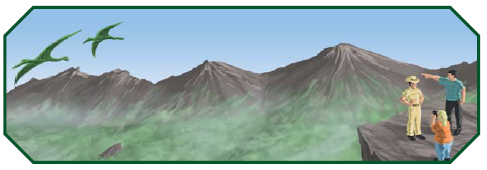 If you want to get involved in crosstime trade yourselves, the book recommends White Star Trading, van Zandt’s original company, now Infinity’s in-house import-export group with an emphasis on subtlety and not being corporate dickheads. Detailed descriptions of trade practices, mercantile ethics, and what goods can and can’t be it bought or sold in what kinds of timelines make up the bulk of this chapter, and I covered most of the rest near the start of this update. The only thing of note is White Star’s penchant for quiet smuggling, which drives Infinity oversight nuts – especially since it’s so widespread they can’t hope to investigate every branch’s possible illegal activity, let alone crack down on it. My biggest question about this section is who the gently caress was van Zandt? Infinity sounds like a corporate nightmare in the making, a corrupt, brutal organization beholden to both the national interests and their insane profit margin. In fact, there’s a whole sidebar exploring how an evil Infinity might working campaigns. But as a whole it’s bafflingly benevolent. I did some linguistic deep diving through the book, and it almost never mentions Infinity’s profits without bringing up exactly where they go (and it’s never into investors’ pockets). The word “shareholder” only appears twice, both of those at the beginning of the section, and the book refuses to put a price tag on salaries or profit margins outside of very specific instances. Despite the overwhelming incentive to play politics and pay colossal bribes, Infinity seems to consistently distance itself from politics or corruption. It gives all of its members free reign because it can trust them. How? How did he pull this off? The book implies van Zandt built Infinity’s corporate structure from scratch, but how did some physicist without a relevant background set all this up without leaving it a dysfunctional mess? How is it so free of corruption? Why does it seem above international politics? It boggles the mind. Next update, we look at the rest of Homeline society – everything from the United Nations to the Vatican.
|
|
|
|

|
| # ? May 24, 2024 15:30 |
|
It does seem like the authors fell into the classic nerd trap of overdetailing an inherently untenable setting, rather than handwaving the obviously busted economics and potential ethical concerns and focusing only on the playable parts Also, if the very existence of time travel is to be kept a secret in Homeline how exactly does the tourism industry work? Some kind of Freemason style invitation only secret club? PoontifexMacksimus fucked around with this message at 22:32 on Jun 7, 2021 |
|
|
|
Age of Sigmar: Sylvaneth Loraxplaining So, in the Age of Myth, Alarielle was alone for a long time. She was awakened by Sigmar, but after that she decided to spend her time outside the company of others, finding peace in nature alone - nature alive and blended into all kinds of life she had never seen in the World-That-Was. She spent her time talking to the plants and animals, using her immense magic to care for them. Only when she grew bored of that did she go into her belongings and take out the seeds she had saved from the time before, which were her more precious possessions. She chose the planting locations carefully, for the conditions of each seed would bring forth new and unique beings. These were the first of the Sylvaneth, hand-planted and hand-raised by the Everqueen. In motherhood, she found purpose, blossoming into a greater being. She found Sigmar and thanked him, finally joining the Pantheon of Order and bringing her gifts to the realms outside Ghyran. In the days when the Pantheon of Order ruled, the Sylvaneth spread throughout Ghyran, taking control of the majority of it. They lived in harmony with the land and largely were peaceful and friendly with the human tribes that lived alongside them in the Jade Kingdoms. The Noble Spirits defended them from rampaging monsters, the rare hostile human tribes and the occasional vaguely friendly attacks by local greenskins. The Dryads and Branchwraiths lived in peace, nurturing the land and singing the spirit-song. The spirit-song united all of the Sylvaneth from the moment their pods opened. It still does, for the most part. It flows in their thoughts and bodies, echoing into the roots of their plants. It is impossible for most non-Sylvaneth to understand and often painful for those who try anyway. It is emotion and harmony and communication, and only the very smallest part of it can be expressed as sound. The more Sylvaneth are in an area, the stronger the song is in that area. For the Sylvaneth, the spirit-song is a thing of comfort and strength, and to be alone and in the midst of silence is perhaps the greatest fear most Sylvaneth know. In their early history, they used the spirit-song to keep in contact even over great distances, growing immense realmroots throughout the depths of Ghyran's soil. These roots were magical, allowing the song to propagate along them, and the most powerful Sylvaneth were even able to use their magic to teleport along the realmroots, flowing as easily as the spirit-song. The Sylvaneth spread through this time, creating enclaves across the Mortal Realms. The simplest of these were small heartglades - just clearings where they could rest - while the greatest were massive clusters of halls and castles of living plantlife. Each enclave was different, and each was built in sites rich in life and magic. Those outside Ghyran often required more martial defenses, which the Sylvaneth understood and prepared for. What they did not prepare for was the fact that the spirit-song was unable to pierce into other realms. Sylvaneth outside Ghyran were still able to hear faint echoes of the spirit-song in their minds, but they were very quiet. For the most part, they were small islands of song in the midst of a great and terrible silence. Some of these enclaves fell to madness, others fled back to Ghyran. Those which endured only did so in places where life magic was at its strongest, great glens and waterfalls and other places where life could not be tamed or bound. Here, they planted their soulpod groves and grew new realmroots. The realmroots proved able to connect great distances within a realm, but they could not connect different realms as realmgates could. The Sylvaneth of each realm had to build their own spirit-songs, only faintly able to hear that of Alarielle. They grew as best they could, joining the new choirs, while Ghyran itself grew in leaps and bounds. As a side note before it all comes crashing down, we should talk about the soulpods. These are the most sacred thing the Sylvaneth know of short of their mother-goddess. The soulpods are what keep the species alive, eggs of life magic enriched with the souls of dead Sylvaneth. If the soulpods went extinct, so would the Sylvaneth. They take on many different physical forms, resembling various kinds of plant life. Even Alarielle is unable to predict what sort of Sylvaneth will grow from a given pod, but all of them are born of her love, hope and dreams. The oldest bear soul-echoes of the World-That-Was, and each of them is empowered by life magic, cleansing the lands in which they grow. The heart of any enclave is its soulpod grove or groves, for that is where Sylvaneth are born. Chaos frequently seeks out these holy places to destroy them, and the Sylvaneth defend them more fervently than anything else. So! Age of Chaos. For Ghyran, it came in the form of the Plague God, Nurgle, who coveted the Realm of Life. He is not only disease, after all - he delights in rot and growth and birth. His corruptions seeped their way into Ghyran, slowly at first but growing swiftly. Soon, the daemons of plague were overtaking much of the realm, drawing on its life magic to manifest themselves with reckless abandon. Alarielle went to war against them, fighting Nurgle's infections on a thousand fronts. Hundreds of Sylvaneth clans went to fight the daemons. It was a grinding war, and the Sylvaneth fought well - but centuries took their toll. At first, the Sylvaneth of other realms provided all the reinforcements Alarielle could need, but as the Age of Chaos spread, they were hard-pressed to defend their own homes. Others were unable to get home due to captured or smashed Realmgates, and so they could not send aid. Ghyran was left on its own. Alarielle and the Ghyran Sylvaneth continued to fight. However, while they were brave and strong, the battles took their toll. Ghyran was scarred deeply by the wars, and many Sylvaneth died. The loss of so many of her children drove Alarielle near to despair, and she could not bear to see them forced to flee their homes and go into hiding. Worse yet, many of the Jade Kingdoms turned against her worship and betrayed her in favor of Nurgle in hopes of being spared. The daemons of plague gained human allies who led them to the sacred places of their Sylvaneth neighbors, and entire soulpod groves burned and were corrupted. Nothing the Sylvaneth did seemed able to stop Nurgle for long. At last, Alarielle lost the strength to continue. She led her remaining children into hiding, weaving great sorcerous veils to protect them from Nurgle. A few Sylvaneth still went out to fight, but they were largely seeking vengeance rather than victory. Overcome by depression and the death of Kurnoth at the Battle of Tears, the Forest Queen fled to her hidden vale in Athelwyrd, going into a deep slumber. She roused herself but briefly to defend her children a few times, but she had no will to fight. She wanted only solitude now, and had practically given up all hope. By the time Sigmar remerged from Azyr, Ghyran was all but lost entirely. The armies of plague traveled freely, hunting for the hidden enclaves that remained, and the land itself was rotting, as the Garden of Nurgle pushed clsoer and closer to it. Sigmar sent his Stormcast to seek out Alarielle, hoping to rekindle their old alliance. The Hallowed Knights entered Ghyran first, but others followed, fighting the forces of Nurgle and seeking out the Everqueen. They soon found themselves fighting alongside the handful of Sylvaneth groves still resisting, but they were few and far between, and the Sylvaneth were not quick to trust these newcomers they had never seen before. None would reveal the location of their goddess, and some even attacked the Stormcast as invaders. Despite this, the Hallowed Knights refused to give up. They sought Alarielle continuously - and in doing so, they accidentally led the forces of Nurgle to Athelwyrd. The battle there was brief but vicious. Alarielle awoke to help fight, but there were too many, and she was forced to flee her home, accompanied by a small group of Sylvaneth and Stormcast defenders led by her handmaiden, the Lady of Vines. This Branchwraith led the group through the realmroots to try and escape their pursuers, but couldn't lose them all. Alarielle's despair became complete, and she shrank into a soulpod herself. The Sylvaneth and Stormcast fought hard to defend the chrysalis of the goddess, aided by a Seraphon constellation that came out of nowhere. Eventually, the Lady of Vines brought Alarielle's soulpod to one of the few remaining pure, holy places of Ghyran, where it could absorb life, power and vengeance from her defenders. She fell in defense of her goddess, but it bought the time that was needed. Alarielle emerged from her soulpod reborn, blooming and radiant. In her fury over the death of her champion, Alarielle sent forth a massive pulse of pure life magic, wiping out all of the Nurglite forces in the immediate region. Her spirit-song began anew, with no more despair or sadness. In its place was anger, vengeance and joy at rebirth. Her first act was to personally gather the soul of the Lady of Vines and re-plant her, returning her to life as a reward for her service. The Season of War had begun, and Alarielle summoned up all of her remaining children in a force unseen in centuries. The Sons of Durthu, her ancient bodyguard, returned from the distant realms she had sent them to hide. The Free Spirits came to her aid, and they brought her the last remnant of Kurnoth - his shining spear, which bore what energies remained of him. Even the Outcasts, the broken Sylvaneth who could hear only the rage and war of the spirit-song, came to serve. Alarielle gathered the Regents of the Glades, who ruled over her children, and also called Sigmar's own champion, the Celestant Prime, to attend her. The alliance of old was reforged, overruling any protest from Alarielle's more xenophobic followers. The allied forces soon moved to besiege the Genesis Gate, one of the key Realmgates held by Chaos - the one that led to the Allpoints. It had long since been turned into floating islands of foul magic and horrible flesh-monsters, known as the Landshoals. The Oakenbrow Sylvaneth had made many attempts to take it back, but had always failed. Now, though, they had Alarielle in her aspect of war and the aid of the Stormcast. It was a bitter, hard-fought campaign, but Alarielle took out all of her pent up rage on Nurgle's forces, destroying the circle of powerful fortresses known as the Ring of Corruption. Nothing could stop her from pushing through to the Genesis Gate and using her magic to seal it, blocking the further spread of Chaos. This push was the first move in a succesful attempt to push Nurgle out of the area of Ghyran known as Thyria. Each day, he lost ground in the Jade Kingdoms, and the Sylvaneth took it back. They helped found the three new cities known as the Seeds of Hope - Greywater Fastness, the Living City and the Phoenicium. (They've come to regret Greywater, but the other two are doing well!) The War of Life continues, and Alarielle is confident this time that she can win it. Next time: The Season of War
|
|
|
|
PoontifexMacksimus posted:It does seem like the authors fell into the classic nerd trap of overdetailing an inherently untenable setting, rather than handwaving the obviously busted economics and potential ethical concerns and focusing only on the playable parts It’s kind of frustrating because the setting is excellently designed from a game perspective - it’s packed full of hooks for every kind of campaign, everything is evocative and creative, and it includes solid gameplay advice every step of the way. But the setting itself has flaws, one of which is so egregious I’ll likely spend half an update on it alone. E: also, the next update touches on that second question. Hint: they use enough paperwork to scare off crime syndicates. DoubleE: I’ll bring it up in the next update, but one piece of outtime tech they stole was a powerful amnestic that wipes all memories of the last hour or so with no known side effects no matter the dosage or application method. So, that helps. Falconier111 fucked around with this message at 02:59 on Jun 8, 2021 |
|
|
|
Was the Sylvaneth Spirit-Song a thing at all back in the Warhammer Fantasy days for dryads and such? Because I just came across that same idea for elves in the 2nd Age Glorantha stuff, with all elves in a wood connected by a single life-awareness.
|
|
|
|
Mors Rattus posted:The War of Life continues, and Alarielle is confident this time that she can win it. She just got a big push as of Broken Realms Kragnos. Using the ascendant life energy that came with Nagash's defeat, she preformed a powerful Rite that restored the Oak of Ages and Athel Loren in Ghyran, and is sending a powerful surge of life across the realms. (Now this had the side effect of freeing a very aggressive and angry imprisoned primordial god, but he has not been smashing any of her stuff yet, so I imagine she will still be saying it was worth it when she becomes aware of Kragnos.)
|
|
|
|
Somehow I always associated Athel Loren more with Ghur than Ghyran. Plants sure, but angry plants.
|
|
|
|
The Lone Badger posted:Somehow I always associated Athel Loren more with Ghur than Ghyran. Plants sure, but angry plants. Ghyran has tons of angry plants. Ghur also tends to be more like a savanna then a forest. (Though you can no doubt find them in both realms) quote:A reality of never-ending bountiful life. The realm of Ghyran is a place embodying life in harmony, forever turning in a circle of beginnings, endings and new beginnings. The embodiment of life, growth, fertility, fecundity, birth and rebirth. The realm teems with countless forms of flora and fauna, as well as many different kinds of magical beings and spirits of life. Much of this life tends to be harsh towards those that would disrupt it's harmony. quote:A reality of titanic monsters and primordial savagery, the Realm of Ghur is a place of conflict and wildness. The embodiment of hunger, brutality and the survival of the fittest, Ghur is a realm of life, but not in the same way as Ghyran. No, it represents life in competition with itself, the strong seeking to dominate the weak, predators hunting their prey and in turn being hunted themselves. For everything is both predator and prey. Gargantuan beasts clash with one another for the right to mate, carnivorous flora seek to ensnare animals the size of castles and grow tall on the blood of the slain, their roots drinking deep of the life fluids.
|
|
|
|
From Hell pt. 17: Psychonauts 101 Degenesis Rebirth Katharsys Chapter 10: From Hell Homo Degenesis PSYCHONAUTICS The intro fiction follows some dumb Spitalian on an expedition in Balkhan. He doesn't like the heat and humidity (first time we hear that it can be uncomfortable in the neoprene suit). Neither does he like the cool and professional Preservist who never takes off his gasmask. Our Spitalian is also fourteen years old. quote:Irina has had enough. She strips down the top of her suit, knotting the rubber arms around her waist. Her white top is all wet. I stare like an Apoc on Burn. She looks over at me with a come-on smile; I look away. drat, she caught me. There is only one way out: confrontation course. They enter Maribor, the Spitalian downs a tranquilizer pill for some dumb reason, and the group is immediately owned by a Dushani. quote:Then I see the stranger. He appears like a mirage. His movements are incredibly fluid; it looks as though he had no joints and was made of rubber. On his head he wears a mask with a dozen glasses that all seem to stare at me. A thick strand of hoses of various length hang from his mouth area, nimbly swinging from one side to the other. Like a radar. Jetatehe? Or like an octopus searching the ground for something to eat. “Jetatehe” is one of the words symbolizing that the Dushani has started formatting his brain. But luckily for the group, the Preservist is very much on the ball. quote:Duchamps kicks him away, pushes the Splayer into the Dushani’s chest, and presses him to the ground. The Psychonaut thrashes around like a fish on a spear, throwing his head side to side. The hoses whip the floor. Then Duchamps presses the button at the shaft of his weapon: the blades close, bisecting ribs and spine with a crash. So much for the Dushani. However, the Psychonaut managed to tear off the Preservist's mask, revealing that his face is so mutilated that only eyes remain intact. quote:Irina is already back up and stumbling towards me. She takes my hand and pulls me to my feet. Yes, removing the ears makes a person deaf, that's how it works. Anyways, with that dumb phrase, the intro fiction comes to an ignominious end.  As an extremely uncultured boor, I can't tell how inappropriate this quote is for this chapter. Know Your Enemy We already head this: Psychonauts are born to Leperos, anti-vaxxers (“normal people who did not want to bow to the de-sporeing craze of the Spitalians”) or people who didn't have a chance to undergo desporeing. The kids are normal at first, but hungry: quote:It clings to her, sucking at her breasts until blood flows and the child has to be torn away by force. Marko sure loves the bleeding breast image, because this was already mentioned in Primal Punk. We also get some bullshit about how the psychobabies are serious, a trait that midwives like and parents “sugarcoat” because it's good to be serious in the wasteland  But then someone sees rocks floating next to the kid's head or the kid absorbing light. This is guaranteed psychonaut poo poo, and people suddenly start remembering that, say, the kid has never been ill or cold. Energy center Psychotoddlers don't talk much and in those years, the fight against genes doesn't seem lost yet (book's words, not mine). quote:Parents ask their children about a burning or tickling feeling at certain points of the body axis. The exact position tells the Spitalians which Earth Chakra has taken over the child: the sensitive spot is one of the seven human Chakras that the Bygones had already identified as energy centers of the human body. OK, what happened in pre-Eschaton Europe to leave everyone with keen memories of chakra poo poo, but basically no other religions surviving? But whatever, the difference is that while regular people have all seven chakras in balance, Psychonauts have only work working overtime, while the others are burnt out. Plagues Psychonauts use Earth Chakra uplink to control centipedes, spiders, and other insectoid vermin. Catalyst quote:The mitochondria are the power plants of the human cells. Hey, gang, Marko has done a meme! So, ugh, like mitochondria is the power plant of the cell, so Sepsis is for the Psychonaut. It's interwoven with the nervous system, channels the Rapture (I think this is alternate term for specific Chakras) signals, and enables Phenomena (powers). A Psychonaut can have maximum sepsis rate of INS+Primal x 2 an- wait, why the gently caress do we need that? Do Psychonauts have full char sheets? Why isn't it like the Marauder Ambrosia counter? It's not like the players can become Psychonauts!  When your numeon vocalizer starts repeating "born on a mountain, raised in a cave, trucking and loving is all that I crave," RUN Primal Phase If a Psychonaut wants to use a power, rolls as many dice as he has Spore infestation and the difficulty level is equal to the level of the power. Some powers require the psychonaut to go into overload, trading one Spore infestation point to lover the Action Number. I think it's just a muddled description that says that some powers just need Spore expenditure to fire, and it decreases your Action Number, so that Psychonaut naturally gets weaker the more powers he uses. Focus Phase If a Psychonaut runs out of Spore Infestation, his fibershroom connection to the Earth Chakra turns off. quote:Once the spore infestation is used up or blocked, the Psychonaut comes from the depths of the Chakra collective to the surface of what the humans see as their world. Beneath him, there is a universe of emotions; above him, the starless void gapes. He hates it. A disconnected A Psychonaut in Focus Phase gets to use Ego points. He also seeks to get more champignon spunk in him again, and instead of being combatative, he tries to evade the captors by doing parkour. IF worst comes to pass, he gives up with hopes to find a way to escape. What this means that dumping an Ypres-load of EX on a Biokinetic is a good way to capture yourself a Psychonaut! In Combat A Psychonaut in Primal doesn't use Ego – in regards of Innitiative, Spore Infestation works in a similar way. So he gets slower as he fights, I guess. He also doesn't care about reaching Ego 0 while in Primal. quote:Only when de-sporeing forces him into the Focus phase does he collapse with a destroyed Ego. Imagine I made another joke about hurling insults at a Psychonaut until he drowns. Also, this data should have gone into Primal and Focus sections in the previous page, but nope, they're here. This is  formatting at its finest. formatting at its finest. The Four Primal Phenomena There may be 5 Raptures with their own power, but these are the ones each Psychonaut gets. Environmental Adaptation – Level 0 (no roll) The fluff says that this makes a Psychonaut immune to the environmental hazards like cold in Pollen or the gasses in Reaper's Blow. The rules section only states that it's always on, even during the Focus phase. So, RAW, this does nothing  Pain Resistance – Level 4 Psyhonaut tough! Rules: quote:Once the Psychonaut has built up a spore infestation of 4, this Phenomenon becomes active (no roll necessary). From now on, the Psychonaut registers physical pain, but does not suffer from it: there is no Trauma penalty Wait, why does this have a level if there's no roll? The rules already say that it only works with Infestation 4 or higher, so the level is pointless. Ether Call – Level 4 The Psychonaut calls for help via MushroomNet. Aberrants and humans with at least 4 infestation heart it from miles away, and nearby Psychonauts will rush for help. Yep, there's literally no mechanical component to this aside from the price. Strengthening – Level 1 (no roll) Psychonaut overloads, with each point increasing the Rapture-associated Attribute by one. Fuzziness This sucks: quote:The Phenomena listed are paraphrased, not clearly defined as powers. Every Psychonaut channels his Chakra’s energies through his body uniquely and manifests them differently. Symbols in the dust Like an anime super attack, Psychonaut phenomenon form symbols from dust, bugs, and so on. A level 4 only makes bugs do North Korean parades in the shape of an appropriate Chakra symbol, a level 8 blasts a meters-wide symbol that's “milled several fingers deep into the ground,” while level 10 does geoscaping that will be seen for years. Continental quote:The Spitalians are alarmed. They survey earthquake rifts and magma emissions and map them. Could it be that the Chakra symbols reach continental size? But what, then, will the Spitalians find at the center of such a discharge? Yeah, no, a continent sized Chakra symbol would be scaled to the point where it would leave canyon size marks. This is dumb. In the Spore Field Don't fight a Psychonaut in a spore field because they get recharged at the start of every rounds: +1 in a spore field, +2 in a mother spore field, +3 in their Earth Chakra(?), which I assume are places like Souffrance and the craters. Next time: boring kinetics
|
|
|
|
Would folks be interested in a review of Symbaroum's ongoing adventure path? It does commit a lot of the standard metaplot sins, but I don't remember it being full of gross poo poo and if memory serves the setting mysteries are at least interesting. I like it, despite it's flaws that you'd have to fix to really run it well for actual people.
|
|
|
|
So long as it's free of foul filthy fungus fiction filling the form field I'm all for it.
|
|
|
PoontifexMacksimus posted:It does seem like the authors fell into the classic nerd trap of overdetailing an inherently untenable setting, rather than handwaving the obviously busted economics and potential ethical concerns and focusing only on the playable parts I am curious what is up with van Zandt here. What would make some sense is if he is either some kind of Arisian thought-form or if he is just in touch with a Council of Zandts, or he didn't mention that he's Imaginos from the Blue Oyster Cult album, or something.
|
|
|
|
|
From my dim memories of the setting, the main drive behind keeping things secret is that if people even knew parachronic travel was possible they'd immediately start trying to figure out how to do it themselves and some of them would inevitably succeed.
|
|
|
|
Check out the TV show Counterpart for some of the many many issues arising in a two timelines scenario and imagine that multiplied. It's also a good intrigue/spying show.
|
|
|
|
I'm always up for reading something new.
|
|
|
|
Hipster Occultist posted:Would folks be interested in a review of Symbaroum's ongoing adventure path? Please do, the previous coverage of Symbaroum seemed interesting.
|
|
|
|
I've heard Symbaroum criticised, as a game and a corebook, for being a vehicle for the line of adventures. I have no idea how to react to that, but I'd be interested.
|
|
|
|
90s Cringe Rock posted:I've heard Symbaroum criticised, as a game and a corebook, for being a vehicle for the line of adventures. I have no idea how to react to that, but I'd be interested. Mechanics-wise it's pretty easy to break, and the system itself doesn't scale very high so it can be hard to balance encounters for folks who know how to build Ogres with 2-handed force and Pokemon Casters. But yeah, it's main sin is that the corebooks introduce a whole fuckton of vague mystery and then slowly dole out answers over the course of the adventures.I still kinda like their world though. They do atmosphere really well, and if this were a book or netflix series the narrative would probably make for decently interesting entertainment. I'll start cracking on these books then!
|
|
|
|
The Lone Badger posted:From my dim memories of the setting, the main drive behind keeping things secret is that if people even knew parachronic travel was possible they'd immediately start trying to figure out how to do it themselves and some of them would inevitably succeed.  Also, I haven’t talked about them to keep the narrative clean so far, but Infinity knows of at least three other groups capable of parachronic travel and none of them are people you’d want to be alone in a room with. Even the nicest of the bunch is a pack of ruthlessly conformist imperialists who’ve had to rebuild their understanding of history and other languages because they purposefully stamped them out before discovering parachronic travel, the Klingons to Homeline’s Federation. But Infinity can’t possibly have enough clout to keep people out of other timelines full of business or ideological opportunities; it has a lot of power but it doesn’t have THAT much power. They’re an outgrowth of the UN, after all. Setting up and enforcing the Secret is the best they can do.
|
|
|
|
Is there a thread or discord server for Flying Circus? The review here inspired me to buy it, and I was wondering if there was a place for questions/discussion
|
|
|
|
Kaza42 posted:Is there a thread or discord server for Flying Circus? The review here inspired me to buy it, and I was wondering if there was a place for questions/discussion https://forums.somethingawful.com/showthread.php?threadid=3919104
|
|
|
|
Cooked Auto posted:Yeeaaaah, I stopped finding grimdark interesting a long time ago. I still like 40k, but more as military sci-fi than "In the grim darkness of the dark grimness there is only grimdark". I remember Shadowrun slowly evolving to have a little bit more hope in it, like people finding ways to heal pollution spirits and stuff. Of course, there's also the thing were people have to work better together or a horde of alien beings waiting in deep astral space will invade and eat everyone. Then there's Earthdawn, the fantasy version of Shadowrun set in the same world, just many thousands of years earlier. It's also a mirror philosophically: The world which is dying in Shadowrun has just been born, most Horrors have already left as the tides of magic are receding, people are coming out of hiding. Instead of fighting against the world getting crappier, the heroes are fighting the bad evil leftovers of the earlier age to speed up things improving. It's a really anti-grimdark setting! Some Horrors still being around to be your party's personal endboss just adds some spice to whatever it is you're doing. Though this makes me wish someone would set a game in the even earlier cycle we only get glimpses off: The doomed world so doomed, only the Books of Harrow were left to warn future civilizations of the tides of magic and what arrives when the tides are high. Now that would be grimdark -a world that explicitly can't be saved because both Earthdawn and Shadowrun only exist based on its utter destruction by Horrors. This earlier, dead world lacks even the hope of Shadowrun, that maybe things can be improved. There's no hope for them. The only thing left by them are a few ruins and the magic books they've hidden inside. And of course then, before Earthdawn the Game starts, everyone goes into hiding, protected by magic learned by studying those books, and even the last bit of knowledge of the earlier cycle is lost as Horrors yet again flood the world. Presumably, the last traces of the lost older civilizations are eradicated while everyone is stuck underground/in flying magic cities, waiting for the game to start. Froghammer posted:I really, really don't see the appeal of Degenesis? "It's the post-apocalypse and there's evil fungus and nanotechnology and society has regressed and everyone talks in Cloud Atlas doublespeak and also rape everywhere" is, like, fine I guess for the admittedly low standards of edgelord role-playing, but do people actually play the thing? Degenesis is conceptually weird to me. There are all those potential plothooks you could create about dealing with/exploring the alien mushrooms, or sending expeditions to other places far away to see if there are survivors. But instead of a game of exploration in a hostile world, it's instead this mind-bending garbage no-one cares about. Every time I try to read a post dealing with Degenesis, my eyes just glaze over half-way through while my mind switches to auto-pilot.
|
|
|
|
If you want a post-apocalypse science fantasy world that's weirdly obsessed with mushrooms, there are several examples in the OSR that are better and, amazingly, less rapey than Degenesis
|
|
|
|
Foglet posted:Yeah, there is a thread. And a link to the Discord on the plane builder site, which you can get to from the links in the Aircraft Catalog.
|
|
|
|
 Update 6: The Rest of Homeline We covered Infinity Unlimited in five posts, let’s see if we can do the entire rest of the world in one. The UN is the UN. Its influence over Infinity makes it a hell of a lot more relevant than in our world, but it’s no more a world government than our UN is. The various agencies still exist and do things, but the book ignores them in favor of two (well, three-ish) big things, starting with the Interworld Treaty. Signed by around 95% of the world’s countries since its institution, its five articles provide Infinity with its administrative and political underpinnings:
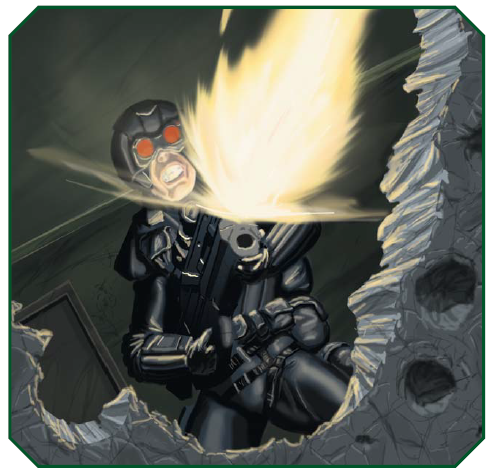 On paper, Alternate Outcomes, Inc. is the only private military company licensed by Infinity to operate in other timelines. It’s actually the business end of the Crisis Ministry, deployed to war zones and other timelines to further its goals whenever necessary. The Battalion (as its members call it) makes ISWAT look like the Miracle Workers; they exist for player groups more interested in gritty military campaigns or warcrime simulators then the idealistic Patrol would allow. Patrolmen have many functions and go on varied adventures with varied equipment. Members of the Battalion always roll out prepared for military action and do exactly that. Internally, the Battalion promotes group loyalty and welfare. All of its 500 or so members are well looked after and treated as the highly trained professionals they are; it prides itself on not needing lieutenants, which it sells as one of its soldiers’ favorite features. No matter the circumstances, all soldiers are given as full a briefing as possible before deployment and the right to refuse a mission without retaliation, and Col. Singh (no details given beyond the fact that he runs the outfit) makes sure no one’s deployed against any countries or cultures they identify with. The Battalion also emphasizes bringing everyone home. Deaths in the line of duty happen, but if someone gets wounded or goes missing, the commanding officer is expected to bring them back before they bug out. Even leaving to complete the mission first gets you immediately set back and probably hurts your chances of promotion. Towards outsiders… Well. Sometimes, the missions involve subtlety and nonviolence. More often, though, they require victory at any cost short of pointlessly sacrificing your own men. They range from masquerading as members of the local military, kidnapping or assassinating notables, stealing things, tweaking specific events, ensuring one side wins a battle at all costs, or even infiltrating other units before massacring them all (which is a specific example of the book gives). Official policy dictates you should give your parole and then breaking it to make pickup and, unless otherwise noted, you should kill any prisoners you take in a period-appropriate manner before leaving. I wasn’t joking when I called it a warcrime simulator. The book provides a campaign framework that lifts this whole section and divorces it from UNIC, turning them into crosstime commandos under mysterious Recruiters sent to kill everyone wherever their deployed for no knowable purpose beyond bloodshed. It also never clarifies what UNIC’s plans actually are. 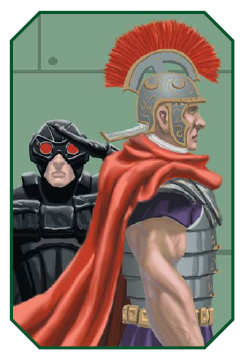 The last part of this chapter covers the rest of Homeline society, starting with the five nations on the UN Security Council:
As for other UN members, Japan and India lead the pack in outtime operations. Japan mostly trades with parallel Japans and patents the products and technologies it purchases back home, and India both runs a successful colony with over 100,000 inhabitants and has Bollywood agents combing timelines for new talent. Most other states only have a parachronic presence if you count companies and private organizations based in them. Well, except for Israel.  You see the sidebar? Cool. Let’s move on. This book was written in an era where "terror” still meant Islamist extremism, and its discussion of international terror networks reflect this. I REALLY don’t want to touch on the subject, so I’ll skip it. It’s just in an otherwise ordinary sidebar about rogue states, anyway. The section wraps up with a quick writeup of a couple other organizations (Amnesty International has a crosstime branch that fails to make an impact so consistently they’re considering giving up pacifism, the Vatican has decided all souls in all timelines can be saved and went socially progressive a while ago, Greenpeace is doing stereotypical Greenpeace things), and we’re done. That’s one chapter out of eight down. And in only six updates  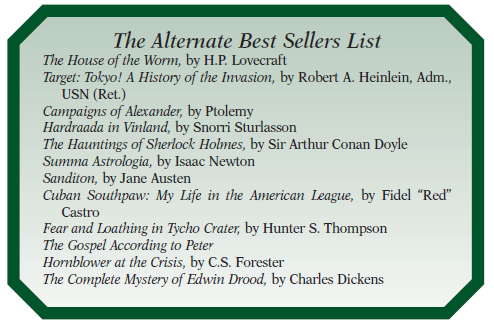 So, thoughts. As a game resource, this chapter is exceptional. While not everything can be a hook, it has more than enough campaign ideas, flavor, and supporting infrastructure to occupy a GM almost indefinitely; if you finish your campaign about stranded Patrolmen finding a conveyor to get back home, you can switch to a gritty war drama with the Battalion, run a White Star outpost prying open new markets, and try out an intricate crosstime murder mystery with Justice before settling on a comedy campaign herding idiots for Time Tours. All of these examples are taken from campaign backgrounds laid out in sidebars throughout the chapter, by the way, each detailing everything from a recommended power level to the mood a given game should strike. Worldbuilding wise, it’s kind of a mess. There are so many holes in this setting, most of them around how Infinity can be perfect all the time. They never address how Infinity can be both profit driven and put benevolence over profit, how van Zandt seemed to know how to do everything, or why they let Homeliners interact with other timelines so freely when you’re trying to preserve the Secret. They don’t even go into the reasoning behind the Secret, though they do imply it’s because they don’t want any more enemies with access to parachronic technology (we’ll explore that next chapter). It’s kind of infuriating. But my personal biggest, meanest, ugliest bugbear? Disease. We don’t have to be told that our world is a festering ball of horrifying illnesses. We carry around pathogens that don’t affect us because our bodies are used to them but could kill someone who’s had no prior exposure. They can handwave outtime diseases in Homeline by pointing to outtime medicine, but by all rights every pre-modern timeline they encounter should be a devastated wasteland within a generation without active intervention. Yes, I know they didn’t include that because it would be terrible, terrible game design, but it’s the sort of question that immediately springs into any historian’s mind and that’s kind of the people they seem to be marketing the game towards. I can’t bring myself to hate it, though. For all its flaws, it IS a vibrant, interesting setting, one that holds up if you don’t prod a few specific parts. And next chapter we get into Homeline’s rivals, and we learn a little bit about why certain elements seem to make no sense. That’s because they’re reactions.
|
|
|
|
FWIW I think they got Israeli settlement policy down pat, I can't imagine any government in my lifetime acting significantly different if timelines travel was a thing. E. Vvvv that's a great point, though I'd probably not like the person who wants to play a french neo-colonialist. By popular demand fucked around with this message at 22:14 on Jun 8, 2021 |
|
|
|
Credit to Infinite Worlds for giving a super-detailed setting explanation without forgetting to include playable hooks. Each section I was like, "I'd play a campaign of that" and it seems like the book is set up to allow that.
|
|
|
Falconier111 posted:But my personal biggest, meanest, ugliest bugbear? Disease. We don’t have to be told that our world is a festering ball of horrifying illnesses. We carry around pathogens that don’t affect us because our bodies are used to them but could kill someone who’s had no prior exposure. They can handwave outtime diseases in Homeline by pointing to outtime medicine, but by all rights every pre-modern timeline they encounter should be a devastated wasteland within a generation without active intervention. Yes, I know they didn’t include that because it would be terrible, terrible game design, but it’s the sort of question that immediately springs into any historian’s mind and that’s kind of the people they seem to be marketing the game towards. By popular demand posted:FWIW I think they got Israeli settlement policy down pat, I can't imagine any government in my lifetime acting significantly different if timelines travel was a thing. Are there any abiotic Earths that Infinity has access to? Such a place would have three great points of value: One, comparison between that planet and Homeline/other inhabited Earths; two, terraforming practice; and three, you know, you can just dump poo poo there, who gives a gently caress?
|
|
|
|
|
Oh dang I didn't even consider the benefits of having entire worlds to use as dumping grounds, the old question about launching trash into the sun is always answered by just how unbelievably expensive it is to get stuff into space but timelines travel seems much more viable.
|
|
|
|
By popular demand posted:Oh dang I didn't even consider the benefits of having entire worlds to use as dumping grounds, the old question about launching trash into the sun is always answered by just how unbelievably expensive it is to get stuff into space but timelines travel seems much more viable. Ethical prisons? "You're dangerous to everyone, but rather than killing you or locking you up for life, we're just sending you to a world where there's no sapient life. Have fun, I don't know, shooting ferns or something for the rest of your life."
|
|
|
|
 Dragon Union, or Lohikäärmeliitto in the original Finnish, is a brief supplement for D&D that changes some core assumptions about the game. It’s system neutral, but heavily tied to Basic, particularly the character classes. The book is under 40 pages, so I'm doing this all in one go. It's PWYW on DriveThru with a suggested price of  The book begins, strangely enough, with a prologue that is the first part of the Biblical story of Jonah: how he was called by God, refused, and ended up thrown from a ship during a violent storm. The first part of the book proper, then, is a section titled GAMEMASTER IS THE LORD. The LORD (it’s always capitalized like that) is the absolute arbiter of the rules and may change them at will. It tells you not to worry about complicated rules for what happens if you catch on fire. The LORD will handle that, just try not to be dumb enough to stand in a fire. But this old-school, DM As Wrathful Old Testament God framing is deceptive. You see, Dragon Union breaks with the assumptions of OSR games in a major way: the player characters can’t die. The premise is that they’re heroes who have already reached “name level” and retired, and they’re telling tales of their exploits to their grandkids or whoever is in this bar. But if the party’s foolhardiness leads to a TPK, they’re in the hands of The LORD, who is free to mess with them and their stuff, adding an ignominious chapter to the heroes’ history. You can’t die, but you can lose. The adventure begins when you leave home and ends when you return home, and in that time you should complete all the Quests that the LORD gives you, especially if it’s piddly crap like collecting ten rat tails or whatever. (I think this is to convey the old-school assumption that you don’t recover spells and hit points until you leave the Dungeon and return to Town.) Another way in which Dragon Union follows old editions of D&D is that your character’s abilities aren’t all summarized in the entry for their character class. (In AD&D, for example, you have to read between the lines of the combat rules to understand how the ranger is designed to be the party’s sniper.) A key example in Dragon Union is that the rules dispense with tactical movement in favour of a priority system: the monsters will seek to do battle with the Fighter unless another PC gets their attention, and the halfling is always last to be targeted. Dragon Union is designed for 4-7 players, preferably 7, because that’s how many classes there are: Fighter, Elf, Cleric, Thief, Magic-User, Halfling, and Dwarf. Some good-natured competition between players is built into the rules, starting with character creation. CHARACTER CREATION Rolling up characters is rather whimsical. You start by rolling 3d6 down the line--and then do that as much as you want until you get the scores you want! That said, if you’re the last person rolling, you only get 15 minutes so we’re not here all night. Now we have to figure out who’s playing what: The person with the highest total ability scores plays the Elf. The Cleric’s role goes to whoever wants it. If there’s competition, it’s whoever can recite the most Bible verses. I would win this, since this is a Scandinavian game, and my parents sawed off the top of my head and inscribed the entire Lutheran liturgy directly onto my brain. The Fighter is the leader, so that role goes to the winner of a secret ballot. Voting for yourself counts thrice. The Cleric’s vote counts twice, as does that of whoever kept their ability scores first. If you voted for yourself to be the Fighter and lost, you’re the Thief. The runner-up in vote for Fighter is the Halfling. To determine the Magic-User, roll 10d6. It goes to whoever can count up the total first. Whoever’s left gets the Dwarf. Every class has a Best Ability. You can swap your best ability score into that one.  CLASSES The Fighter is the leader of the party, and destined to take the Throne of Xarlor and rule these lands someday. Until then, you decide where the party goes, what they do, and how long they stick around. Except the Halfling, who never listens. Speaking of which, you’re the only PC who can hit other party members to keep them in line. Your best ability is Strength. Besides being party leader, your most important job is managing treasure and XP. It all goes to you, and you divvy it up for the party from there. You can’t give anybody more than the Elf, and they’re first in line for any magic items you don’t want. You automatically double any XP you give yourself--hey, that’s good for everybody, since you’re the first in line to get eaten by monsters. You can wield any weapons and armour you want. In combat, you can also grab enemies instead of doing damage, to stop them from moving or attacking without penalty. You also have a gang of hangers-on who fight with you and talk about how great you are. They mostly suck, but they’ll gang up on enemies you’ve already wounded. You have an impressive title--it’s whatever boastful moniker you can enforce. You should spend a few thousand gold on a farm where you can retire--no, wait, a badass castle! Too bad you can’t just buy the throne. The Cleric is, one day, the high priest of the LORD. It’s your job to be the Fighter’s conscience and hold them to any oaths and promises they make on your adventures. Seriously, write them down. Your best ability is Wisdom. As in box-standard D&D, the Cleric has to wield blunt weapons. On the plus side, you add your Wisdom bonus to all saving throws. Since you get spells, of course, most of your abilities are vague--it’s implied that you’re the party’s liaison to the LORD and you’ll be rewarded with experience points for acting as the self-appointed chaplain. You know how a lot of old-school games suck because everyone is just questioning, wheedling, and whining to the DM? You’re the one who gets to do that, and you get XP for not being indignant and annoying about it. The Thief does the party’s dirty work, and what thanks do you get? Well, you’re destined to become the capo di tutti capi of the realm someday, because you do what needs to be done so the Fighter can keep his nose clean. So you’re entitled to skim a little off the top for yourself, aren’t you? Your best ability is Dexterity. Besides stabbing and robbing people, your most important job is logistics. You have to keep track of all the boring poo poo like torches, rations, and time passing. Your position as the party’s scout means that you’re going to find a lot of treasure before the Fighter even sees it. The LORD frowns on stealing from the party, which raises the question of why the LORD passes you notes to let you know about treasures only you can see and awards you double XP for found treasure. You wield one-handed weapons and wear leather armor. But you can backstab enemies who aren’t paying attention, adding your DEX bonus to hit. If you’re wielding a dagger, you also do double damage, a bonus that increases with level. On the downside, if you backstab an enemy and don’t kill them, you’re their #1 priority. Try not to go down before the Fighter, since he might check your pockets before you wake up. You’re sneaky. By default, you can go around hiding and picking pockets until you screw up or do some unthiefly thing to draw attention to yourself. Even in combat, you can choose to steal an item instead of doing damage as long as you don’t break stealth. You can also disarm traps. You’d find and disarm all the traps if you had time, but the Fighter keeps you on a schedule, so most of the traps are going to be disarmed by the Dwarf’s foot. As you go up in level, you unlock criminal connections that can deliver stuff, steal stuff, dig up info, and even assassinate NPCs. Results are not guaranteed if you didn’t do any legwork. The Magic-User is the most mysterious adventurer and the party’s expert on...well, everything, according to the Magic-User. You’re building a mysterious tower and when it’s finished you’ll just hang around, mysteriously. Your best ability is Intelligence. Like I said, you’re the party’s chronicler and rules lawyer. You make maps and take notes on everything, especially monsters and whatever stats you’ve sussed out from failed to-hit rolls and other nasty surprises. Like a classic wizard, you wear robes and a fancy hat and carry no weapon but a staff or dagger. On the plus side, you can read magic runes and identify magic items with 15 minutes of study. When you cast spells, you pass a secret note with the spell description to the LORD, who will dictate the effects. Sometimes you get to describe them yourself, in which case you should be as grandiloquent as possible. Your mage’s tower functions as your spellbook, and will only become larger and weirder and more impressive with time. When you’ve mastered all the other spells, you will get the Wish spell. (Your fondest wish is to be such a powerful magic-user that you can master the Wish spell.) I’m sorry to inform you that the Halfling is the kender of the group. Far from a responsible, respectable Baggins, you’re a mischievous little prankster and the Fighter’s sidekick. No matter how many times you put dogshit in their socks, the other PCs can’t stay mad at you. Dexterity is your best ability. As an incorrigible child, you have no real responsibilities. You don’t even have to be able to count, because you don’t get any treasure! You’d just spend it on candy and whoopie cushions. As revenge you’re encouraged to play pranks on the other PCs, which is how you gain levels. You go by a nickname that the Fighter makes up, and in return you get to call anybody anything you want. Despite getting no share of the treasure, you will always find the single most valuable item, even before the thief, and keep it secret. You can only keep one secret at a time, but you can always turn over the next-best thing to the Fighter--hey, you just found it. Since you’re so small, you can only wear leather armor and wield small weapons like short swords, slings, and small bows. The advantage of being so small is that you’re always last to be targeted by monsters. Some day you’d really like to build an awesome hideout full of jesters and trap doors leading to slides that dump you out into a swimming pool full of candy. Since you’re broke, the first party member to buy one for you will be your new best friend. The Elf is the most beautiful and perfect creature alive and the Fighter’s best friend. You get a bunch of specific abilities that remind everyone how much better you are than them. The downside is that if you fall in combat, the monsters will surely take the opportunity to deal you a mortal blow and snuff out beauty from this fallen world. That’s right, you’re the only PC who can die. Your best ability is Dexterity. The Fighter respects you so much that they never offer anyone a bigger share of XP and treasure than you. You also have first dibs on any magic items they don’t want. You can forego your rights and pass stuff on to the rest of the party. Your senses of sight, hearing, and scent are so potent that you detect many things the others do not. Your tastes are so refined that you only eat half a normal ration per day. This might be because you can talk to animals and, at higher levels, to plants as well. Speaking of which, you have a pet who will help you out any way they can. If you’re in danger of dying, they’ll gladly sacrifice their life for you. You can’t gain another one until you gain a level. Try and make it fast, since they’re the only one besides the Fighter standing between you and death. You can use any weapon or armour, provided it’s as graceful and elegant as you are. Plate armour is too awkward. In combat, your pet will harass an enemy of your choice each turn, giving them disadvantage and giving you advantage against that enemy. Being an elf, you innately know magical tricks the Magic-User will spend their life studying. You need no spellbook, and cast spontaneously. But as you gain new spells, you randomly lose old ones. You also have a 1-in-20 chance of losing a spell when you cast it, but at least that makes room for you to learn new spells. The Dwarf is a cranky, greedy creature who is destined to be the richest man in the world. No wonder he has no idea that he’s the party’s comic relief. Random misfortune always strikes you first, so it’s a good thing you’re hard to kill and too small for enemies to notice you. Your best ability is Constitution. So how are you supposed to get rich when the Fighter is in charge of the treasure and too dumb to know the Thief is ripping you off? You can smell it. You always hold on to the most valuable gem you’ve got, and if anyone has a more valuable treasure, you just know. Whenever you find an even more valuable jewel, you get XP equal to the difference in value, times ten. If you’re already higher level than the fighter, double that! You equip the heaviest armour you can find, the biggest axe or hammer you can find, and a sturdy shield. A crossbow is also nice to have. You’re as unlucky as you are greedy. You’re always the first one in line to be hit by traps and other noncombat dangers. It’s a good thing you’re tough! When you’re reduced to 0 HP, a successful save vs. death will leave you with 1 HP instead. You’re a digging machine, and also an eating machine. You can see in the dark, and you can dig through anything by sacrificing hit points. You require double rations, but you can regain d6 per ration by gorging yourself on food.  ENCOUNTERS The rules for encounters are the same as whatever version of D&D you’re using, but with certain assumptions. A combat round consists of all the adventurers taking their turn in this order, followed by the monsters. 1. Halfing 2. Fighter 3. Dwarf 4. Cleric 5. Elf 6. Magic-User X. The Thief can interrupt anyone else’s turn. Your basic options are attack, move into a better position, or flee. Roll d20+STR bonus vs. AC for melee attacks and d20+DEX bonus vs. AC for ranged attacks. I suppose these Finns don’t like descending AC and attack charts any more than I do. When a monster hits 0 HP, the adventurer striking the final blow decides what happens to them. If you’re reduced to 0 HP, you’re out of action for the rest of the encounter. (Unless you’re the Elf, in which case you’re dead. I don’t recommend playing this game with the full complement of 7 players, because the Elf needs a backup.) If the whole party is wiped out, you’re at the mercy of the LORD. There are rules for advantage and disadvantage, called “blessed” and “cursed,” which are doled out by the LORD as appropriate. There are also rules for critical hits and fumbles: a natural 20 always hits and deals double damage, a natural 1 always misses and blesses monsters’ attacks against you this turn. (This, along with the Fighter’s grab ability and the Elf's pet, are the only clear-cut examples of granting blessings and inflicting curses.) Enemies don’t make decisions about who they attack, and their combat priority is actually an important part of defining the classes. Enemies run this script: 1. Attack the Thief who backstabbed them. 2. Continue attacking the Dwarf, but only if the Dwarf keeps hitting them. 3. Attack a fumbling PC. 4. Attack a PC who dealt them damage last round, in this order: Fighter, Cleric, Elf, Magic-User, Thief. 5. Attack the Dwarf who damaged them last round. 6. Keep attacking their current victim, unless it’s the Dwarf or Halfling. 7. Attack PCs in this order: Fighter, Cleric, Elf, Magic-User, Thief. 8. Attack the Halfling who damaged them last round. 9. Pause for a turn, looking for someone to attack besides the Halfling. 10. Attack the Halfling. It seems complicated, but not really. Enemies want to attack the Fighter first, but other PCs might get in the way.  OTHER DANGERS Traps, slime dripping from the ceiling, lava, hurricanes, and all other noncombat hazards are treated the same way. The first in line to take a fall is always the Dwarf, and the second is whoever throws themself in the line of fire. Without a volunteer, it goes in this order: 1. Dwarf 2. Thief. Even if you came later, you're not laying down your life for someone else like a sucker. 3. Magic-User 4. Cleric 5. Fighter 6. Elf 7. Halfling So that’s Dragon Union. What can I say? It assumes some restrictions so it can be liberating in other ways. I like the wryly stern way it talks about the LORD and the chatty way it discusses the class abilities. (I particularly like the way it makes the Fighter interesting by giving them decisions, as opposed to the many OSR games that give them 3e style combat feats or nothing at all.) The vagueness of how to apply some rules and abilities is one of those OSR things that's liberating if you feel like you've got a handle on it, and distressing if you worry about how stupid, punitive DMs will implement it. So don't worry. The only thing I do worry about is if my group would gel with the competitive mechanics that encourage the Halfling to prop a bucket of ochre jelly over the tavern door. I could actually see using it for some OSR stuff that’s otherwise very grimdark and deadly, so that I don’t have to deal with the headache of slotting in new PCs when you’re on the 17th layer of a megadungeon on the other side of a time portal. You could slot in other classes like Ranger or Shadowdancer or Mutant or Robot to replace whatever Basic class seems thematically appropriate.
|
|
|
|
By popular demand posted:Oh dang I didn't even consider the benefits of having entire worlds to use as dumping grounds, the old question about launching trash into the sun is always answered by just how unbelievably expensive it is to get stuff into space but timelines travel seems much more viable. Nessus posted:What would be interesting is if Infinity, basically, passed out licenses to humanless Earths to various nation-states and were like "cool have fun." It is possible that this is Infinity's middle-term plan and Uhuru is just the first successful completion of the idea. This mostly comes to mind for the fact that it is not a big stretch to say "OK - these are all morally vacant terra nullius - one to a customer - have fun!" Hey guys check out Terry Pratchett & Stephen Baxter's Long Earth series, in which (a significant portion of) Humanity suddenly gains the ability to freely travel to parallel Earths; without spoiling much, it opens up the possibility for more or less ethical (probably?) exploitation of unlimited unspoiled territory and resources, although you can't bring ferrous metals with you when you Step so that's a limiter.
|
|
|
|
I do very much like the conceit of 'can't die, very much can lose'.
|
|
|
|
Dragon Union started strong and only got better. It owns and I want to play it.
|
|
|
|
I would 100% play Dragon Union. The DTRPG version is in English? I might actually bring it up to my group.
|
|
|
|
Gonna have to echo that Dragon Union sounds like a great way to have some fun.
|
|
|
|
honestly that's a great way to handle TPKs, "Wait, you're telling this, what actually happened?"
|
|
|
|
BinaryDoubts posted:Credit to Infinite Worlds for giving a super-detailed setting explanation without forgetting to include playable hooks. Each section I was like, "I'd play a campaign of that" and it seems like the book is set up to allow that. 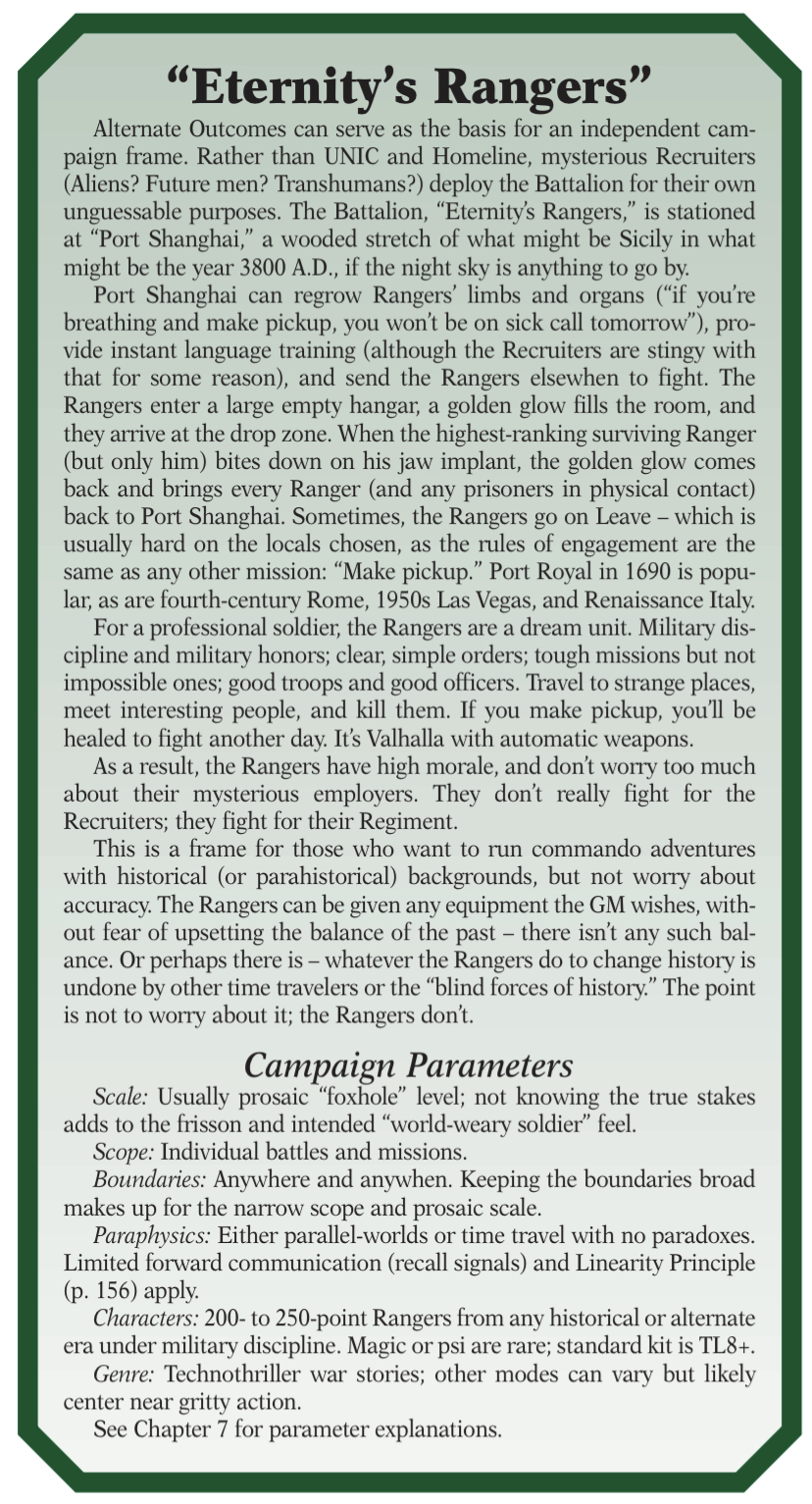 This is a book-standard campaign summary, specifically the alternate version of the Battalion. It’s one of the shorter ones. Nessus posted:They can probably handwave this if they have the Panimmunity sci-fi stuff, which even at low levels could be like "Infinity agents get this for free, even the first level is enough that you're not a vector." If you wanted to give some valor to local scientists, you could say that having easy access to different universe's subtly alternate versions of the clap and Staph A. allowed Homeline scientists to invent panimmunity. As far as I’m aware, the book never talks about that, but that would make an excellent Miracle Worker campaign. Also, that’s basically what they do with empty earths. You just have to include provisions for not loving up the environment and employee welfare in your license (and follow through or Infinity will take your toys away) and you’re good to go. France and the US also have colony worlds on this principle (though America’s is a couple dozen thousand people in Colorado and France’s is an attempted Communist utopia that’s now two warring towns on opposite sides of the Seine), while several corporations own exclusive rights to other empty worlds. As for abiotic worlds, those are a class of Hell Parallel, a catch-all category for unlivable shitholes. Unlike most Hell parallels, they’re as open to exploitation as any empty world, plus there’s no environment to worry about. Nobody cares about terraforming because you have effectively infinite worlds to settle via parachronics, but people absolutely dump waste there and nobody cares. Or they use them to house secret stuff; Special Operations has a bolthole/backup base in one. Also I never thanked you for causing me to do LPs. fakeedit: they don’t use them as prisons because they have Conventry, which I’m sure will come up one of these days.
|
|
|
|
Dragon Union definitely sounds like it has some good ideas.
|
|
|
|

|
| # ? May 24, 2024 15:30 |
Falconier111 posted:Also, that’s basically what they do with empty earths. You just have to include provisions for not loving up the environment and employee welfare in your license (and follow through or Infinity will take your toys away) and you’re good to go. France and the US also have colony worlds on this principle (though America’s is a couple dozen thousand people in Colorado and France’s is an attempted Communist utopia that’s now two warring towns on opposite sides of the Seine), while several corporations own exclusive rights to other empty worlds.
|
|
|
|

























